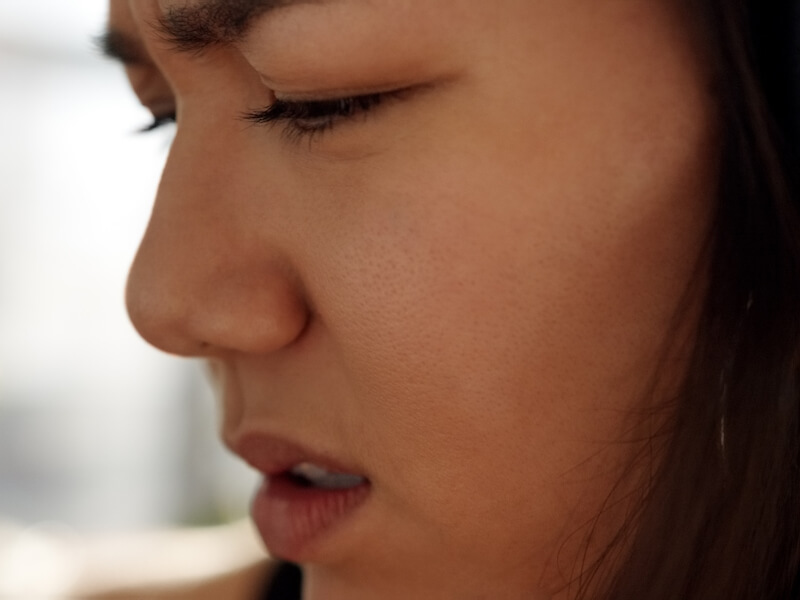
As you probably know, sustained periods of stress aren’t healthy for the body. Stress can produce severe muscle aches and headaches. But did you realize stress can also trigger tinnitus, a ringing, buzzing, or clicking in the ears?
Stress isn’t the only thing that can cause tinnitus, it can also be caused by a sinus infection, loud noises, and other variables. Let’s take a look at a few potential causes of that annoying noise in your ears.
Unhealthy Stress – How to Recognize it
How does stress relate to tinnitus? We often don’t think about the negative impact stress can have on our bodies or how it can cause troublesome, painful, or even severe medical conditions. Stress isn’t something you should neglect.
Healthy Stress
Temporary stress can actually be a really motivating factor when it comes to completing duties. If you’re dealing with a deadline and have to focus on accomplishing a project, stress can be an ally by providing the boost of energy needed to get the job done.
There is a difference, though, between healthy, temporary stress and unhealthy, damaging stress. Healthy stress helps you complete a goal without harming your body. Unhealthy stress is hazardous for your body.
Unhealthy Stress
Usually, an irrational fear is the trigger of unhealthy stress. Unhealthy stress is created when an individual stays in a heightened state of anxiety for an extended period of time.
Unhealthy stress is associates with our “fight or flight” response, a natural reaction that helps keep us protected in dangerous situations. Harmful physical symptoms happen when someone stays in a hyper-stressful circumstance for prolonged periods.
Worrying
Worrying is an extremely common cause of unhealthy stress. We may exaggerate the significance of a situation or an interaction with other people. We may convince ourselves we ruined a chance at a promotion because of something we said. When you worry in this way your intrusive thoughts can really get away from you.
Unhealthy Stress And Invasive Thoughts
We might think that we are falling behind and failing to complete our daily schedule. Obsession, endless internal dialog, and even panic are a typical part of this type of stress. Ultimately, our unhealthy stress wears on our bodies if we don’t do something to curb these thoughts.
Normally, unhealthy stress impacts the upper part of the body by creating muscle tension and pain. The head, neck shoulders, and jaw are areas that can be affected.
Anger And Jaw Tension
Have you ever read a book where the writer portrays a character as being so angry his jaw clenched in rage? Jaw tension is a prevalent symptom of stress, worry, anger, and intrusive thoughts.
Pressure can be put on the fragile bones of the eardrum and inner ear by sustained tension. Eventually, this strain can cause ringing in your ears.
Ear Strain And Sinus Infections
From sore throats to stuffy noses, sinus infections bring lots of unwelcome symptoms.
Headaches, sinus pressure, and pressure in the ears are typical symptoms of a sinus infection. A ringing, clicking, or buzzing can be the outcome.
A stuffy nose frequently spreads to the ears when you have a sinus infection. This can produce excess earwax, which leads to clogged ears and severe pressure on the eardrums. Pressure on the tiny bones of the inner ear can trigger tinnitus symptoms.
If the ringing is brought on by a sinus infection it will probably clear up on its own and you won’t have to consult a hearing specialist. If the ringing persists for more than a few days, however, you should schedule an appointment with a hearing professional.
Extended Exposure to Loud Noises
The intermittent music show probably won’t cause long-term ear-ringing. If you routinely expose your ears to very loud sounds, however, you might be introducing stress to the tender parts of your ears.
Ringing, clicking, or buzzing can be the outcome when the eardrum and inner ears are put under the enormous strain of continual exposure to intense noises.
Above and beyond ringing in the ears, temporary or even lasting hearing loss can be the consequence of repeated exposure to loud noises. Listening to music at a reasonable volume and using ear protection when necessary is crucial for hearing health.
Safeguarding Your Ears
Tinnitus isn’t something you should ignore whichever one of these is the cause. Having your hearing examined by a hearing specialist frequently is the smartest thing you can do. If you suspect the ringing in your ears has a significant underlying medical cause, you should have them examined for your peace of mind.